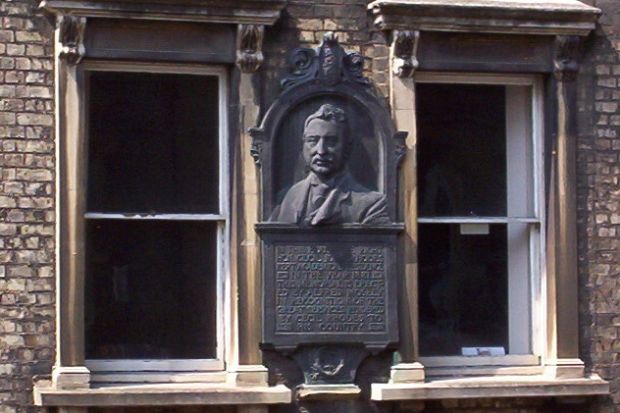
The Cecil Rhodes debate continues to pit students against the establishment at the University of Oxford, with one doctoral candidate denouncing as “scandalous” comments made by Oxford’s chancellor, Lord Patten of Barnes.
In an interview with the BBC on 13 January, Lord Patten argued against the Rhodes Must Fall In Oxford campaign, a movement to remove a statue of the British colonialist from Oriel College, Oxford.
“If people at a university aren’t prepared to demonstrate the sort of generosity which Nelson Mandela showed towards Rhodes and towards history...then maybe they should think about being educated elsewhere,” he said.
However, responding today to the chancellor’s comments in an interview with the BBC, Sizwe Mpofu-Walsh, an Oxford PhD student and founding member of the Rhodes Must Fall campaign, said that it was “scandalous” for Lord Patten to champion debate and freedom of speech while at the same time saying “that people who disagree with him should consider studying in another university”.
Mr Mpofu-Walsh said: “We’re doing exactly what Lord Patten is suggesting a university is for; the factor seems to be that we’re disagreeing with Lord Patten.”
“The notion that Cecil Rhodes should be unreflexively [sic] glorified in 2016 is no longer tolerable”, Mr Mpofu-Walsh continued.
“We think that his legacy should be challenged and the anaesthetisation of history that has continued at Oxford up to this point should be debated, and that’s exactly what we’re doing.”
Debate is not a “gentlemanly discussion over tea and scones”, Mr Mpofu-Walsh added. “Debate involves speaking seriously and taking action, not just talking in abstractions.”
The campaign sits in a broader context of concern about the lack of diversity at the university, according to the PhD student.
“We think that Oxford is institutionally racist”, said Mr Mpofu-Walsh. “It’s had throughout its history significant biases against black people. The first black student was only accepted in 1938.”
Mr Mpofu-Walsh told the BBC that there was only one “senior black professor” at Oxford, and that only 24 black British students had been accepted on to the university’s undergraduate programme this year.
He questioned whether this shows “a bias in the system against black students or…what Lord Patten describes as ‘a poverty of aspiration’’’.




















Have your say